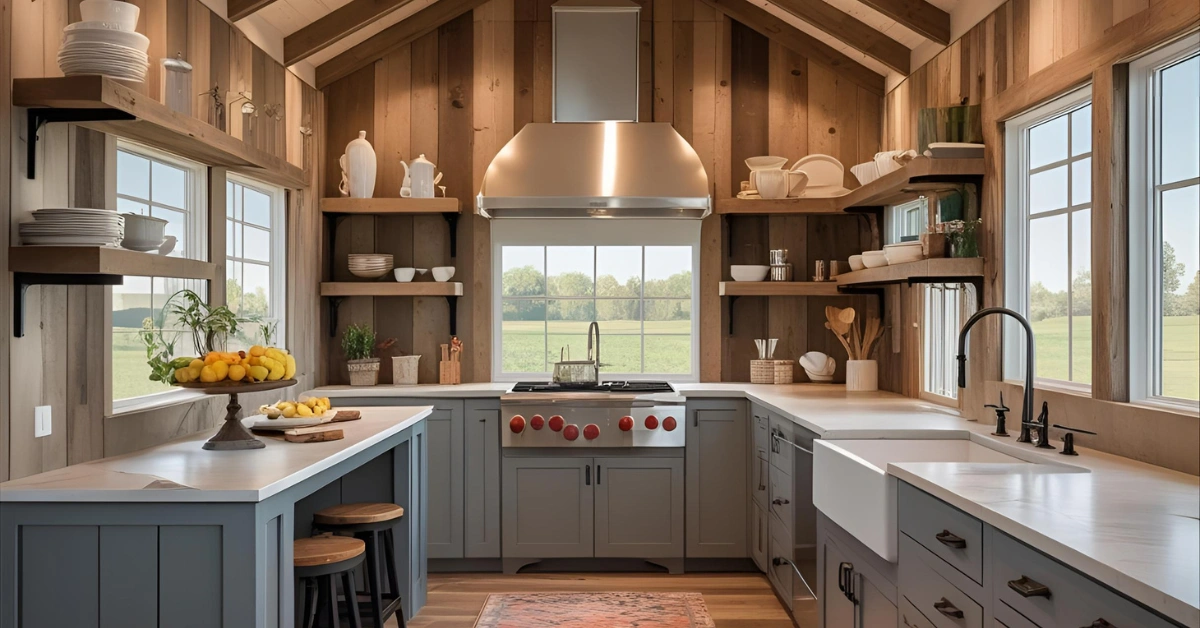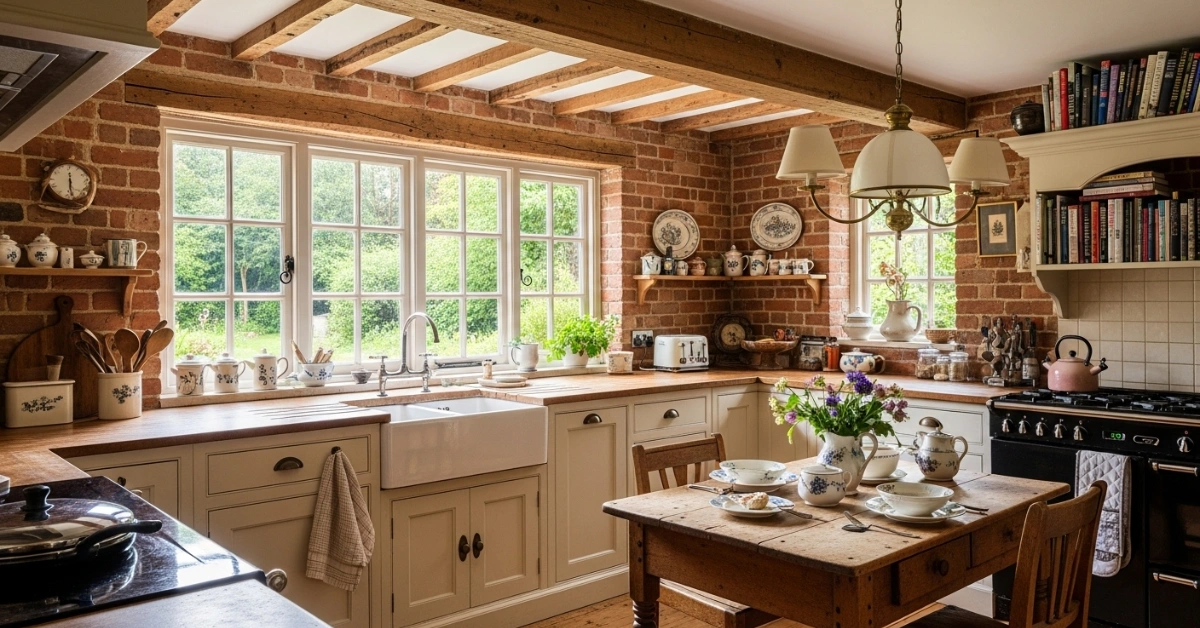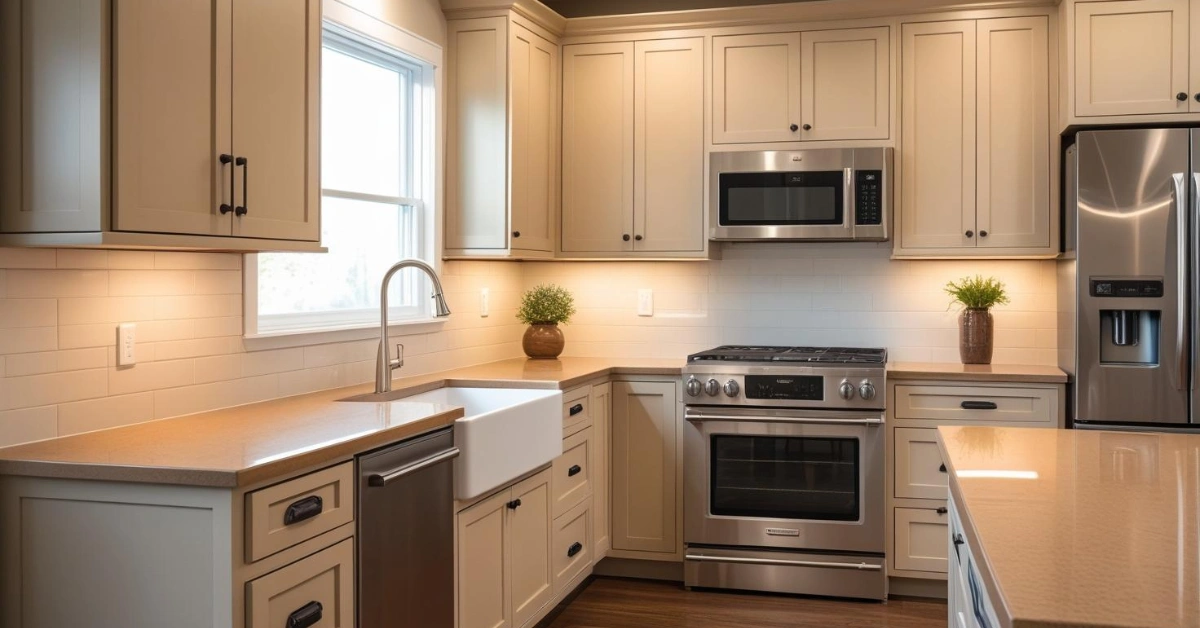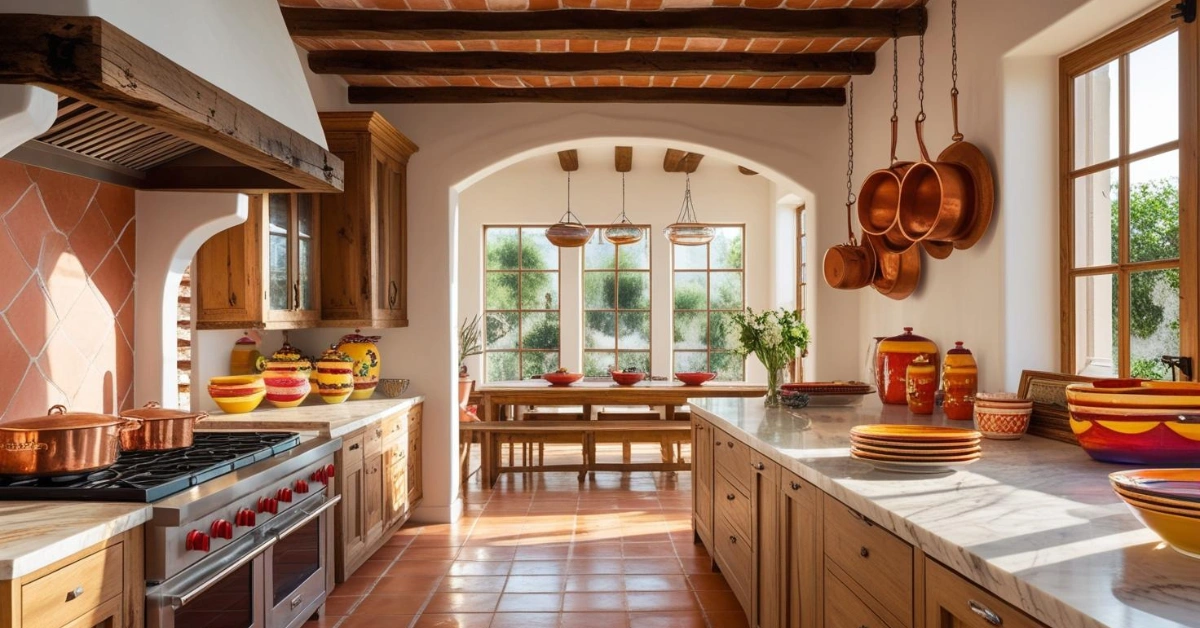15+ Vibrant Mexican Kitchen Design Ideas for Your Home
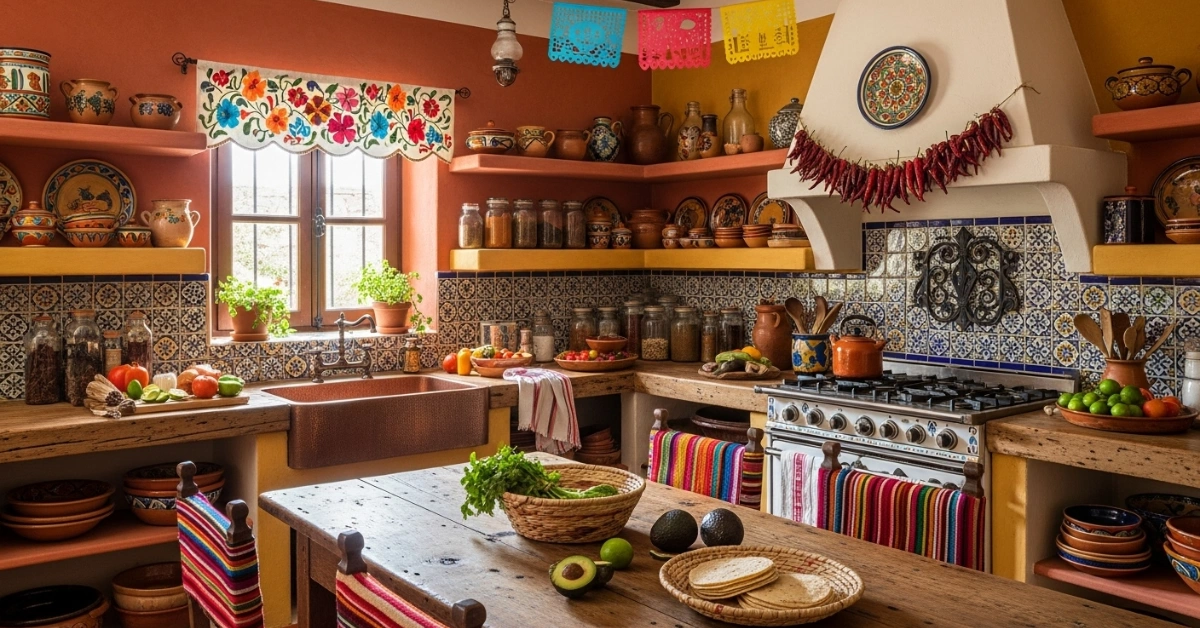
Are you dreaming of a kitchen that bursts with color, warmth, and cultural charm but feel overwhelmed by where to start? Many homeowners struggle to find a design that feels both unique and functional, often settling for generic styles that lack personality. A Mexican kitchen offers the perfect solution, blending vibrant aesthetics with practical elements to create a space that’s as inviting as it is inspiring. In this comprehensive guide, we’ll explore the essence of Mexican kitchen design, share actionable tips, and provide creative ideas to help you craft a space that reflects the heart of Mexico’s rich culinary and cultural heritage.

What Defines a Mexican Kitchen?
A Mexican kitchen is more than just a place to cook, it’s a celebration of culture, history, and community. Rooted in Mexico’s diverse traditions, this design style emphasizes bold colors, natural materials, and handcrafted details. According to Architectural Digest, Mexican design draws heavily from indigenous and colonial influences, creating spaces that feel both timeless and lively. Let’s break down the key elements that make a Mexican kitchen stand out.

Core Elements of Mexican Kitchen Design
- Bold Colors: Think vibrant hues like terracotta, turquoise, and sunflower yellow, often paired with earthy neutrals.
- Natural Materials: Wood, clay, and stone create a rustic, grounded feel.
- Handcrafted Details: Talavera tiles, woven textiles, and pottery add authenticity.
- Open and Social Layouts: Mexican kitchens are designed for gatherings, with large tables and communal spaces.
Designer Insight: “A Mexican kitchen should feel like a warm embrace,” says Maria Gonzales, a Mexico City-based interior designer. “It’s about creating a space where family and friends can connect over food and stories.”
The History Behind Mexican Kitchen Aesthetics
Mexican kitchen design is steeped in history, blending indigenous, Spanish, and modern influences. Pre-Columbian cultures like the Aztecs and Mayans used clay and stone for functional cookware, while Spanish colonizers introduced tiled surfaces and wrought iron. According to Smithsonian Magazine, the iconic Talavera pottery, a hallmark of Mexican kitchens, originated in the 16th century, inspired by Spanish ceramics but adapted with local flair. This fusion of cultures creates a unique aesthetic that’s both practical and visually striking.

Why This Matters for Your Design
Understanding the history helps you make informed choices. For example, incorporating Talavera tiles isn’t just about beauty, it’s a nod to centuries-old craftsmanship. By choosing authentic materials, you create a kitchen that tells a story.
Color Palettes That Bring Your Mexican Kitchen to Life
Color is the heartbeat of a Mexican kitchen. The right palette can transform a bland space into a vibrant hub. Here are some popular combinations, inspired by Mexico’s landscapes and traditions:
- Warm and Earthy: Terracotta, burnt orange, and deep red evoke the sunbaked deserts.
- Cool and Coastal: Turquoise, aqua, and white reflect Mexico’s coastal regions.
- Bold and Festive: Bright yellow, cobalt blue, and lime green create a lively, celebratory vibe.

Practical Tip: Paint one accent wall in a bold color like chili red or mustard yellow, and balance it with neutral cabinets or countertops. This approach, used in a recent Oaxaca-inspired kitchen remodel, keeps the space vibrant without overwhelming it.
How to Choose Your Palette
Consider your home’s overall aesthetic and natural light. For smaller kitchens, use lighter shades like cream or soft blue to keep the space airy. Larger kitchens can handle bolder contrasts, like pairing turquoise cabinets with terracotta tiles.
Must-Have Materials for an Authentic Mexican Kitchen
Materials are the foundation of Mexican kitchen design, grounding the space in natural textures. Here’s a breakdown of essential materials and how to use them:
| Material | Description | Best Use |
|---|---|---|
| Talavera Tiles | Hand-painted ceramic tiles with intricate patterns | Backsplashes, countertops, or accent walls |
| Rustic Wood | Weathered beams or reclaimed wood | Cabinets, shelves, or ceiling beams |
| Wrought Iron | Durable, decorative metal | Light fixtures, cabinet hardware |
| Clay Pottery | Handcrafted pots and dishes | Decorative accents or functional cookware |
Real-World Example: In a recent project in San Miguel de Allende, designers used reclaimed wood beams for open shelving, paired with Talavera tile countertops. The result was a kitchen that felt both rustic and refined.
Sourcing Authentic Materials
Look for local artisans or specialty stores for authentic Talavera tiles and pottery. Websites like Etsy or Mexican Tile Designs offer high-quality options. For budget-friendly alternatives, consider tile decals that mimic Talavera patterns.
Incorporating Talavera Tiles: The Heart of Mexican Kitchen Design
Talavera tiles are a signature of Mexican kitchens, known for their vibrant patterns and durability. Originating from Puebla, these tiles are hand-painted with intricate designs, often featuring floral or geometric motifs. According to Mexico News Daily, authentic Talavera is certified by the Mexican government to ensure quality.

Where to Use Talavera Tiles
- Backsplash: Create a focal point behind the stove or sink.
- Countertops: Use sparingly for a bold yet balanced look.
- Flooring: Pair with neutral walls to avoid overwhelming the space.
Designer Tip: “Mix and match Talavera patterns for a curated look,” suggests designer Sofia Rivera. “But stick to a cohesive color scheme to keep it harmonious.”
Practical Tip: If budget is a concern, use Talavera tiles as accents around plain ceramic tiles. This approach saves money while maintaining authenticity.
Furniture and Layout Ideas for a Functional Mexican Kitchen
Mexican kitchens are designed for community, with layouts that encourage interaction. Here are some ideas to create a functional yet inviting space:
- Large Central Table: A sturdy wooden table serves as a prep area and dining space, perfect for family gatherings.
- Open Shelving: Display colorful pottery or woven baskets on rustic wood shelves.
- Island with Seating: Add bar stools for a casual, social vibe.
- Corner Nook: Create a cozy seating area with cushioned benches and vibrant textiles.

Real-World Example: In a Guadalajara home, designers installed a reclaimed wood island with wrought iron stools, creating a space where the family could cook and socialize together.
Layout Tips for Small Spaces
For compact kitchens, maximize space with:
- Wall-mounted racks for pots and pans.
- Foldable tables to save floor space.
- Bright colors to make the room feel larger.
Textiles and Decor: Adding Warmth to Your Mexican Kitchen
Textiles and decor bring a Mexican kitchen to life, adding layers of texture and personality. Consider these elements:
- Woven Rugs: Handwoven rugs in bold patterns add warmth underfoot.
- Embroidered Curtains: Use lightweight fabrics with colorful stitching.
- Pottery and Baskets: Display handcrafted bowls or baskets as functional decor.

Practical Tip: Hang a woven wall tapestry as a statement piece above the dining table. This approach, seen in a recent Tulum-inspired kitchen, adds texture without cluttering countertops.
Lighting That Enhances the Mexican Kitchen Vibe
Lighting sets the mood in a Mexican kitchen, balancing functionality with ambiance. Here are some options:
- Wrought Iron Chandeliers: Add a rustic, elegant touch.
- Pendant Lights: Use colorful glass or ceramic pendants for a pop of color.
- Under-Cabinet Lighting: Highlight Talavera backsplashes or countertops.

Designer Insight: “Lighting should feel warm and inviting,” says designer Juan Morales. “Opt for soft, warm-toned bulbs to mimic the glow of a Mexican sunset.”
Appliances and Modern Touches in a Mexican Kitchen
While Mexican kitchens embrace tradition, modern appliances can enhance functionality without sacrificing style. Stainless steel appliances blend seamlessly with rustic elements when paired with colorful accents. For example, a sleek refrigerator in a neutral finish complements a vibrant Talavera backsplash.

Integrating Modern Elements
- Conceal Appliances: Use cabinet panels to hide dishwashers or microwaves.
- Smart Features: Add a smart oven with a sleek design for convenience.
- Neutral Finishes: Choose matte black or stainless steel to balance bold decor.
Practical Tip: In a recent Mexico City renovation, designers hid a modern dishwasher behind a wooden panel painted in a soft terracotta shade, maintaining the rustic aesthetic.
Creating a Budget-Friendly Mexican Kitchen
You don’t need a big budget to create an authentic Mexican kitchen. Here are some cost-saving tips:
- DIY Talavera Decals: Use peel-and-stick tiles for a fraction of the cost.
- Repurpose Furniture: Refinish an old wooden table with a distressed look.
- Shop Secondhand: Find wrought iron fixtures or pottery at thrift stores.
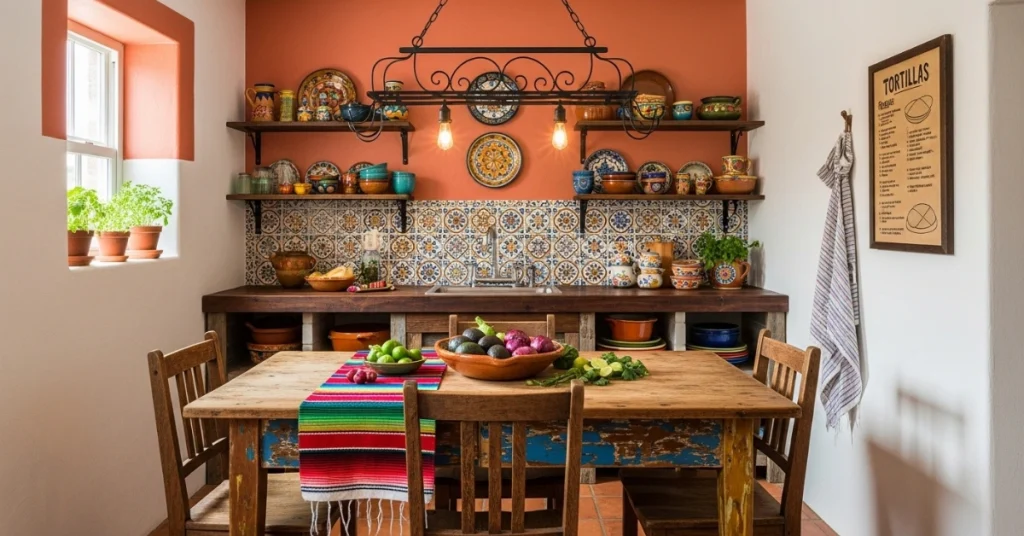
Real-World Example: A homeowner in Tucson transformed their kitchen for under $2,000 by using tile decals, repainting cabinets in a bright turquoise, and sourcing vintage pottery from local markets.
Maintaining the Evergreen Appeal of Your Mexican Kitchen
To keep your Mexican kitchen timeless, focus on durable materials and classic designs. Avoid trendy elements that may date quickly, like overly modern fixtures. Instead, prioritize handcrafted pieces and natural textures that age gracefully.

Seasonal Updates
Refresh your kitchen seasonally with:
- Bright table runners for summer.
- Warm-toned pottery for fall.
- Festive decor like papel picado for holidays.
Common Mistakes to Avoid in Mexican Kitchen Design
Even with the best intentions, it’s easy to make mistakes. Here are some pitfalls to avoid:
- Overloading with Color: Too many bold hues can feel chaotic. Stick to 2–3 primary colors.
- Ignoring Functionality: Ensure ample counter space and storage for practicality.
- Using Inauthentic Materials: Cheap imitations can diminish the cultural charm.
Designer Tip: “Balance is key,” says Maria Gonzales. “A Mexican kitchen should feel vibrant but not overwhelming leave room for the space to breathe.”
Inspiration from Real Mexican Kitchens
Looking for real-world inspiration? Here are two examples:
- Oaxaca Farmhouse Kitchen: This kitchen features terracotta floors, whitewashed walls, and a colorful Talavera backsplash. Open shelves display handcrafted pottery, while a large wooden table anchors the space.
- Tulum Coastal Kitchen: Inspired by Mexico’s beaches, this kitchen uses turquoise cabinets, woven pendant lights, and a reclaimed wood island. The result is airy and inviting, perfect for coastal vibes.

How to Start Designing Your Mexican Kitchen Today
Ready to bring the Mexican kitchen aesthetic to your home? Follow these steps:
- Define Your Vision: Decide on a color palette and key elements (e.g., tiles, wood).
- Set a Budget: Prioritize high-impact items like tiles or lighting.
- Source Materials: Shop from reputable suppliers or local artisans.
- Work with a Designer: For complex projects, consult a professional specializing in Mexican design.

Start your Mexican kitchen transformation today! Browse authentic Talavera tiles on Mexican Tile Designs or consult a local designer to bring your vision to life. Share your progress in the comments or tag us on social media for a chance to be featured!
Conclusion: Make Your Mexican Kitchen a Cultural Masterpiece
A Mexican kitchen is more than a design choice, it’s a celebration of culture, warmth, and togetherness. By blending vibrant colors, natural materials, and handcrafted details, you can create a space that’s both functional and inspiring. Whether you’re starting from scratch or refreshing an existing kitchen, these ideas and tips will help you craft a Mexican kitchen that’s uniquely yours. Begin your journey today and let the spirit of Mexico transform your home.

